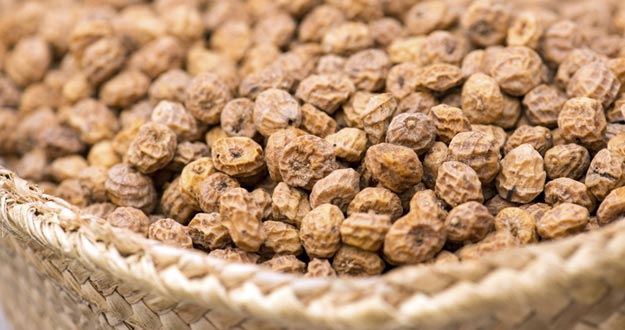Some days ago, I could read an interesting news: A new device created in Alicante disinfects food with ultraviolet light. Then, I would like to show you the explanation.
Ultraviolet light radiation, which is a part of sunlight and it can cause adverse health effects, is now revealed as an "ally", effective in disinfecting food, through a patented device internationally, by three researchers from the Department of Analytical Chemistry, Food Science and Nutrition, of the University of Alicante (UA).
The device, which mainly disinfects liquid food, such as horchata, juices and wine, is able to eliminate, cold, the biochemical contamination of these foods, without affecting their organoleptic characteristics.
The technology, developed by these scientists, is based on the irradiation of ultraviolet light to food and, as its creators affirm, it is totally safe for consumers and it eradicates pathogen agents, quickly and safely. Moreover, the system has advantages, such as its low cost.
The development of this system arose from the demand for a national company, headquartered in Jijona (Alicante), dedicated to the manufacture of machinery for the sectors of ice creams, candies, sweet and treatment of almond.
They proposed to find an alternative to the use of bleach, to disinfect groundnut, ingredient with which the horchata is made.

Groundnuts
After a couple of years of work and an assistance, from the Centre for the Development of Industrial Technology (CDTI), under the Ministry of Economy and Finance, the device, devised by the UA, has been successfully tested, in the disinfection of opaque food fluids, ie, it lets no light through (horchata, juices and wine).
Now, that company, based in Jijona, Mechanical Jijonenca SA (Mejisa), is making the system, invented by the three researchers of the AU, for marketing.
The Professor of Analytical Chemistry, at the UA, and responsible of this research, José Luis Todolí, explained that, usually, physical or chemical treatments, to disinfect food, are used during the manufacturing process.
However, chemical methods can produce harmful byproducts, to be removed, while processes as the pasteurization --a technique applied, mainly, in dairy or juices-- suppose a thermal shock, that can affect the organoleptic characteristics of the food.
Todolí noted that food, once disinfected, "can become infected if, for example, remain stored". "With our system, unlike pasteurization or methods using chemicals, food can be disinfected, as often as we want, unmodified qualities", said the researcher, who has indicated that they have already registered the patent application.
Therefore, the patented technology, by the AU, can replace widespread processes, such as pasteurization, being less aggressive with food and allow values similar to current disinfection.
This system, whose world premiere will be next February, at the International Fair Ice Cream and Related (Intergelat), which is usually held, at the Institution of the Fair of Alicante (IFA), in Elche, may be applicable also in surface disinfection of any solid product.
Now, the three researchers want to use it for disinfection of solid foods and the production line in the food sector, where bactericidal detergents are used, has advanced Todolí.
Well, I hope that you have liked this news.
Until my next post, kind regards,
Lui.
Sponsored by Costaluz Lawyers.
Pleas click below:
